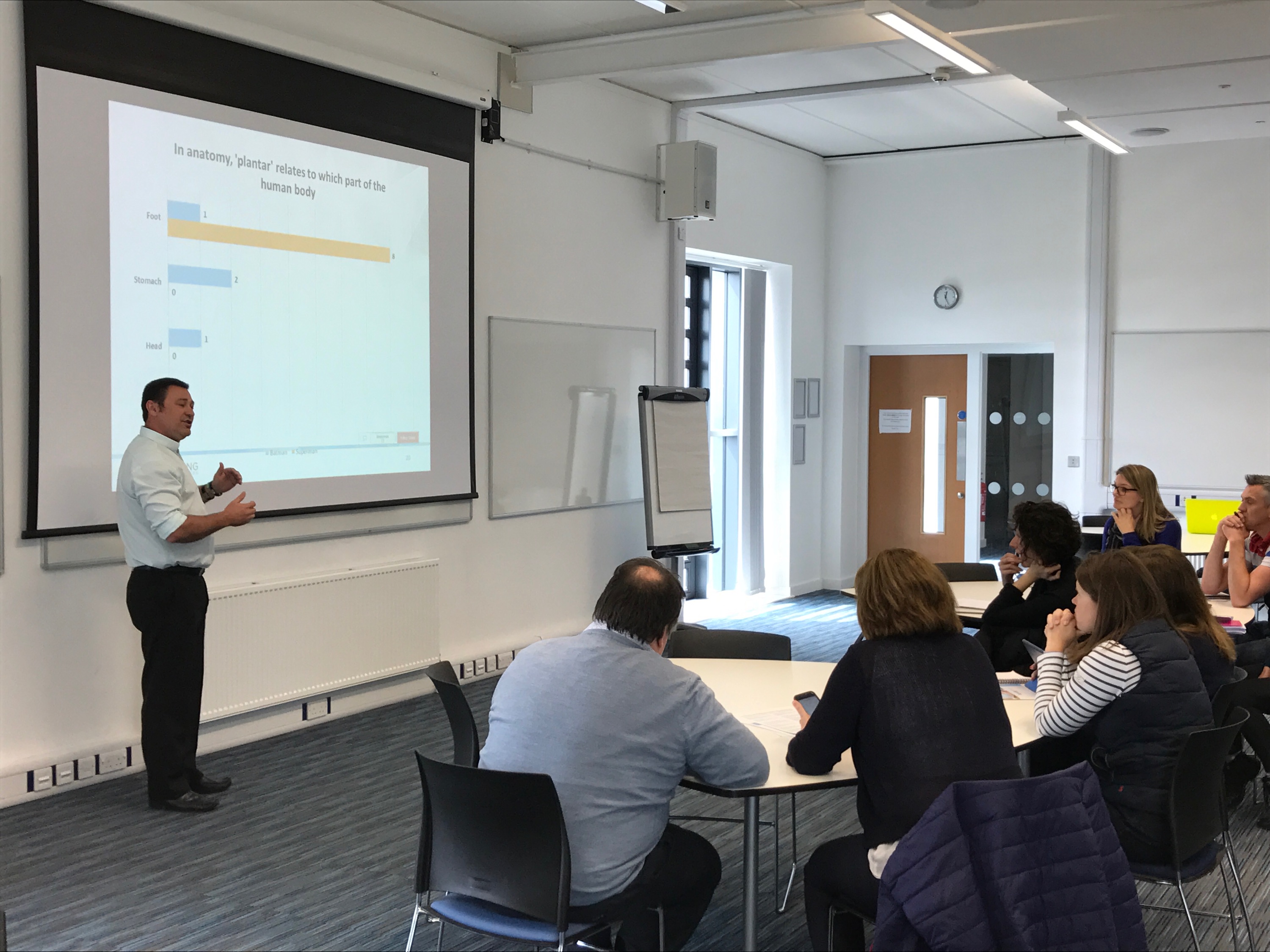This event on copyright was very well attended by staff from all areas of the University, and was presented by:
Lisa Slater – Solicitor, Legal Office
Caroline Brooks – Abel & Imray (Patent & Trade Mark Attorneys)
Simon Clegg – Battens Solicitors
Hannah South – Head of Library Academic Services
Claire Tylee – Bibliographic Services Librarian
Rob Hyde – Audio Visual Service Manager
There is soon to be a recording of the event available to watch
Lisa Slater began by introducing the context of this event. Copyright at the University needs to be paid more attention with the ever increasing use of technology (to access, use, store and publish ‘works’), as well as the confusion between content which is in the public domain and content which is publically available.
The University has a Revised IP policy which has largely been brought on by the increasing use of lecture capture, and the event followed by raising awareness of the importance of copyright & support available around campus.
The event was in three sections, each of which can be navigated to quickly by clicking the links below:
- Copyright essentials
- How the Library and Audio Visual can help
- Questions and answers from the session
Copyright essentials
You can download and view the slides from the section of copyright essentials here, which contain information on what attracts copyright, who owns copyright, and when you can use other people's work. The following paragraph is a summary of the essentials, written originally by Keith Brown on his blog:
Reflecting on the excellent LITEbox Copyright event yesterday, I wanted to provide some succinct guidelines for academics regarding copyright and the use of third-party materials. Many thanks to Lisa Slater, Legal Adviser, for her comments and advice. For further details about copyright please see http://www.bath.ac.uk/university-secretary/legal/copyright
Ownership
- Academics own the copyright in their scholarly materials such as lecture slides and publications
- The university has a licence to use these materials (see IP policy for detail)
Using Third-party materials
When used internally within the University by students, third-party materials incorporated inside an academic’s materials are unlikely to entail substantial risk, and we can very often rely on an educational exception or ‘fair-use’ provided that:
- the amount taken is reasonable
- proper attribution is included (e.g. a Harvard type reference)
When third party materials are included inside an academic’s materials that are available externally to the university then the risk of infringement is substantially higher. Examples include publishing on a web-site, blogs, a post on Facebook or slides that are published on a conference web-site.
The safest and risk-free way to licence third party materials is to go through the library, or AV for video oriented issues such as using BOB.
Extracts from books
Using extracts or images from publications such as books and journals require that you scan/obtain the copies though the library to meet the terms of the CLA licence administered by the library. The library can be contacted on: copyright@bath.ac.uk
Hosting behind SSO (Single Sign On)
Any risk of infringement action is reduced by hosting material that is restricted by the university single-sign-on. This includes Moodle and the Wiki.
For more information on copyright and data protection, visit the University Secretary's website.
How the Library and Audio Visual can help
The library can provide advice on teaching and presentations, publishing your own work, and supporting students. Please view the slides from the event detailing how the library can help.
Find out more about what the library can offer for the following:
- Library Scanning Service
- Finding material (books, articles, images…), referencing
- Publishing and Open Access (OA)
- Copyright and theses
The Audio Visual team provides licensing to use media material around campus, including ERA, Microphone Licensing, the film bank and Box of Broadcasts.
If you are still unsure you can contact your subject librarian, or email copyright@bath.ac.uk.
Questions and answers from the session
Is it worth protecting content by including the copyright symbol (©)?
Generally yes it is good practice to, the copyright symbol helps to prove that you own the copyright for the content which you have created. The logo also helps prove that you created the content so can be useful to help solve disputes.
If we are asking students to create videos, what steps can be used to protect from copyright being infringed?
You can try to rely on the educational exemption provided fair use has been taken into consideration, however you should try and promote good practice to the students to avoid the scenario of them infringing copyright laws. You need to be extremely careful if content is submitted to an external platform, e.g. if the students upload to Facebook or YouTube. It is suggested to ask them to put all content behind the University's single sign on.
What is the difference between the Copyright Licensing Agency (CLA) and educational fair use policy?
The CLA authorises in the number of copies is considered fair use, generally if you are being reasonable this will not be breached, however the Library monitors usage so you should go through the Library. Fair use dictates when you can breach copyright for educational purposes. The best practice is go use the University licenses through the Library.
What are the regulations on using the same textbook widely? For example using different chapters of the same book.
It is acceptable to use different chapters of the same book for teaching a different cohort of students, but not acceptable to use multiple chapters for the same cohort as this is not considered fair use.
Is there a contract for external speakers who come to the University? Who owns the copyright then?
Each case is different and often there are no terms, but you should obtain permission if filming, especially for data protection. The speaker owns the copyright of what they have said, so you need to ensure they give permission to use and republish what they have said. The legal office has consent forms which include copyright issues, so contact them for help.
Is it better to email content to students directly or host it on Moodle?
The University's IP policy states that content should be shared behind a secure network only, so content behind single sign on is the easiest way of doing this. When using emails there is more of a tenancy to forward the content to someone who is not allowed to see the content.
Are students with disabilities entitled to extra information, for example a multiple chapters of a book?
Yes they are allowed more information and some of the limits are relaxed, however if there is commercially available content which could be bought and as a result would lose out on sales, it may be necessary to purchase this. Please contact the library for more assistance on this topic.
Do students with disabilities have an automatic right to record in lectures?
The right disabled students have to record is outlined in paragraph 22.4 (h) of the University’s Intellectual Property Policy:
each staff member acknowledges the right of the University to permit students who have a disability as defined in the Equality Act 2010 to record lectures and other presentations ..… and authorises such recordings. In such circumstances the lecturer or presenter will be informed that the lecture or presentation is being recorded, the student may use the recording only for the purpose of personal study and …… copyright in the content of the lecture or presentation shall be the property of the lecturer or person delivering it.
This is indeed an absolute right such students have, and staff members do not have to consent to it and should therefore not be preventing such students from recording.
A concern was raised that teaching staff are under much pressure at the moment, and having to take all of this into account could take more time than is allocated unless the University centrally allocates more time to teaching.
Once again, if you have any further questions please contact your subject librarian, or email copyright@bath.ac.uk.
Respond



